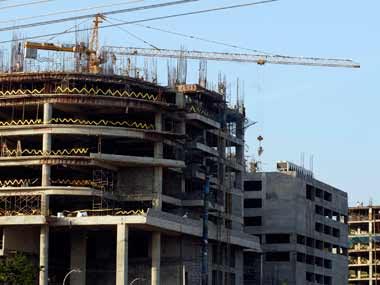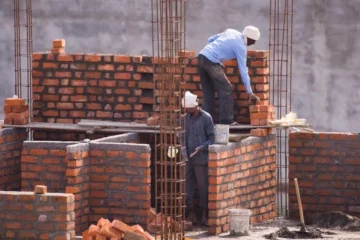With stress on liquidity and no cash to pay for basic utilities, the initial effect of demonetisation drive has been a knee-jerk reaction to a wait-and-watch policy mode.
More than a month has passed for the demonetisation exercise, and yet, it’s ongoing process continues to disorient the society which has been quite disconcerting. It’s full impact can only come to light with time; probably it will be visible in the coming quarter. As of now, it is expected that this move will clean out black money from real estate and bring price correction across all the segment, eventually making property-availability accessible to common man.
Real estate had been witnessing a slowdown for the past three years, but the slowdown induced by the demonetisation move has halted the deals. Experts state that about 15-30 percent of transaction value used to be in black in various markets. “Demonetisation further hit the demand in the last quarter which is generally the booming period for real estate,” says Mudhit Gupta, CMD, EMGEE Group.

Reuters
The market is expecting a correction. This is the most anticipated fall-out of the demonetisation event. This may be only partially true says Arvind Nandan, South Asia Director, Valuations & Advisory at Colliers International India. “It must be understood with some insights into the cash-economy of real estate transactions, and also, with an understanding of demand-mechanism. There is a general anticipation of the removal of 20-30 percent cash-dealings from the transaction process. It leads people to conclude that the prices would fall by 20-30 percent. The reason for such expectations is the climbing down of prices coupled with at least two other factors such as an eventual interest rate decline and the consequent rise in demand. There could be more factors. But even if we account for these, the anticipated price-decline of 20-30 percent will get cushioned to a great extent. In the final form, the price-correction may not be more that 5-8 percent, which is anyway evident already.”
Some like Ricky Doshi, Founder & CEO, ARD Studio are of the opinion that prices of real estate are expected to go marginally up as with demonetisation in place, stringent rules and regulations are to follow in the realty sector in the year 2017.
“There has been 37 percent decline in property registrations across Mumbai alone since demonetisation. However, there is no blip in the demand for commercial real estate,” says Rohan Agarwal, Managing Director-Geopreneur Group.
However, Nandan says there is a general understanding among real estate players that impact of demonetisation has been good with more cleaner deals forthcoming. While the demand pick-up has been slow owing to economic-conditions of recent past, we expect the markets to become active in 2-3 months.
Post the announcement, the real estate sector has gone into the correction mode, says Sahil Kapoor, Executive Director of RE/MAX India. “I believe the move of currency ban has resulted in many key learnings for the industry. Moreover, people now understand the consequences of the mal-practices that were prevalent in the market due to heavy cash preference. Looking at the steps taken and the intentions of the government, I believe we are heading towards the right direction and I see the market gaining positive sentiments in the next 6 months. Currently, it’s best to wait and watch as we expect some clarity post December 31, 2016.”
“The implementation of RERA in the next couple of months will lead to a decline in new launches for the next couple of years thus picking up sales of current inventory. Demonetisation combined with RERA will lead to decreased supply, lower interest rates and existence of only organised developers,” says Gaurav Gupta, Director, Omkar Realtors & Developers.
The biggest challenge in 2016 has perhaps been the huge inventory pile up in the metros.
The year 2016 has laid the foundation for the strong future of the real estate industry. Policies like Smart Cities Concept, Housing for all by 2022, GST, RERA implementation, Demonetisation and Benami Transaction act are all, in effect, steps to sanitise the real estate sector.
The major takeaway for residential realty in 2016 was the passing of the Real Estate Bill. “The bill has boosted the entire industry and is definitely proving to be a game changer for the real estate market. The impact of this bill is profitable to both consumers as well as builders as it will bring transparency in the industry and confidence amongst buyers,” says Ashwin Sheth – CMD, Sheth Corp.
The biggest beneficiary to this demonetisation will be the affordable and mid-income housing.
In 2017 Gupta predicts the real estate market will go through a phase of consolidation. He is hopeful that the overall industry will see a lot more confidence from the buyers/investors, greater transparency, positive outlook by foreign investors and cashless transactions.
[sOURCE:-Firstpost]




